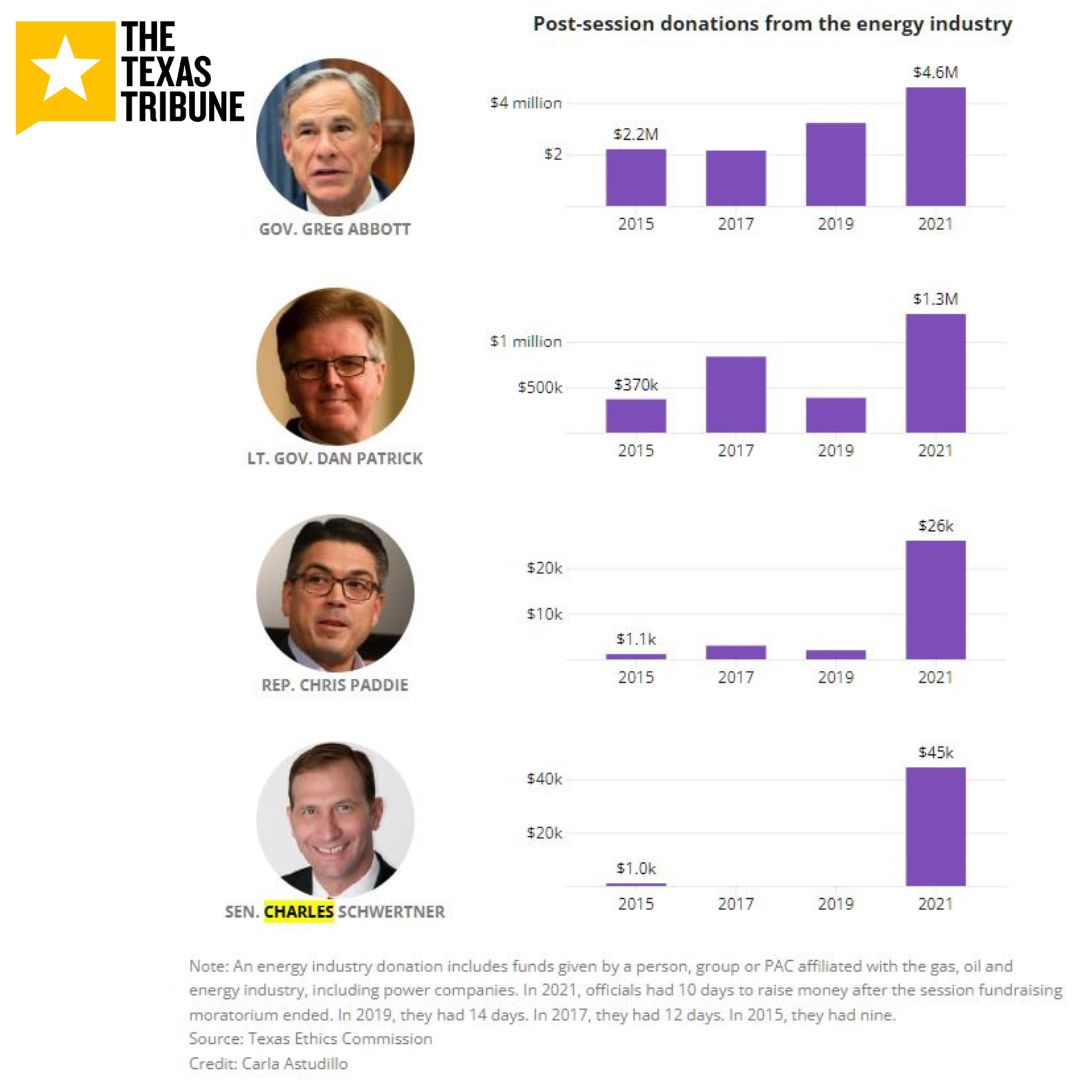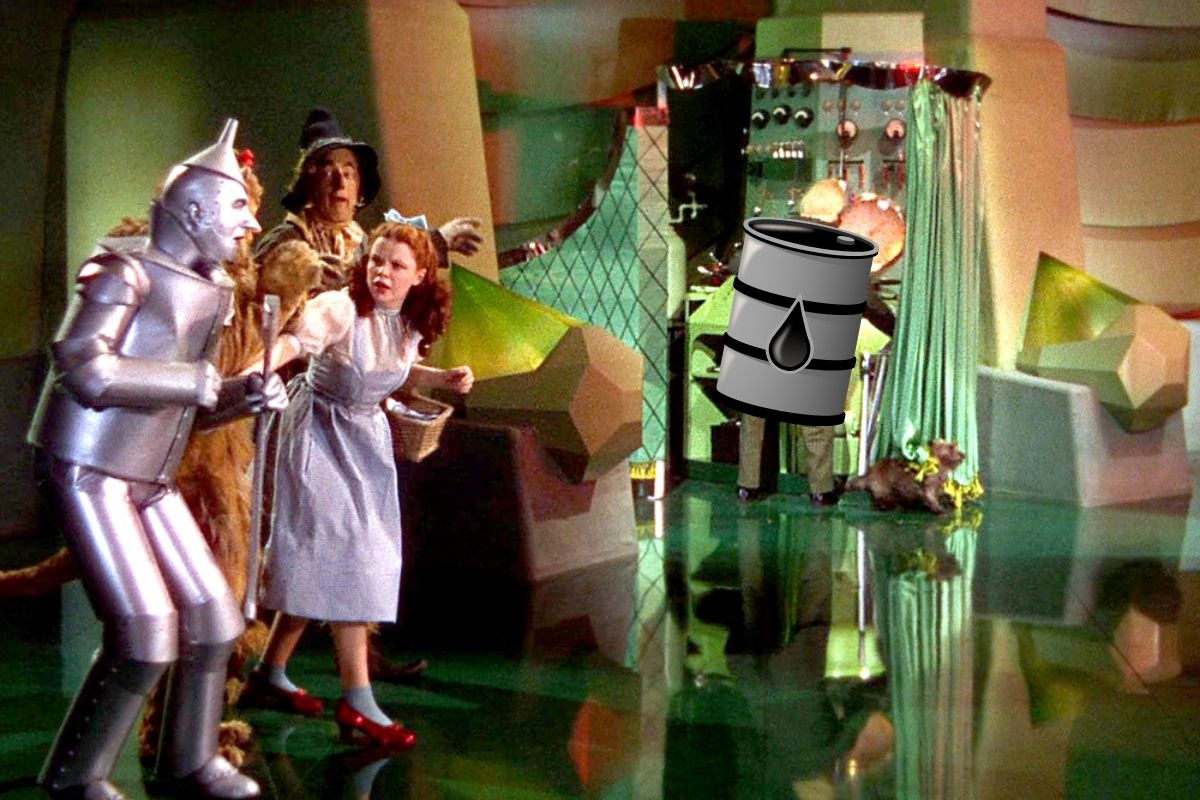Today, November 7, is a major election day for many states. Texans will be voting on at least 14 propositions, but two seemingly bipartisan sections—Prop 6 and 7) actually work to fund fossil fuel companies.
There are several great ballot measures that could do a lot of good. These include things like investing in research grants for colleges (Prop 5), investments to expand broadband access (Prop 8), raise teacher pay (Prop 9), and invest in state parks (Prop 14). However, there are some shitty proposals, too. Ones that remove local control for farm land (Prop 1), prevent a wealth tax from ever being created in the state (Prop 3), and raise the retirement ages for judges (Prop 13). What I find most frustrating are the ones that look great to most people who want to invest in Texans’ future, but covertly sneak in elements to sabotage progress.
Two of this year’s ballot measures do that very thing in an effort to subsidize and undercut climate change action. Prop 6 (SJR 75) and Prop 7 (SJR 93) feature broad, unassuming language that make passing the ballot measure a breeze. However, both would actively harm the Texas environment.
Prop 7 actively stalls expanding clean energy

Prop 7 will provide “the creation of the Texas energy fund to support the construction, maintenance, modernization, and operation of electric generating facilities.” With Winter Storm Uri still in a lot of people’s minds and considering all the “conserve energy” emails we got over the summer, this will likely push voters to vote yes regardless of their politics. Investment and winterization (which is not required, per this bill) are both needed. However, this money will almost exclusively go to projects related to oil and gas—the resources that froze in our pipes during the massive ERCOT outage.
The bill gives $5,000,000,000 in loans (3% interest) and grants to subsidize new gas-powered plants and improve existing ones over two years. The Austin Chronicle and Texas Sierra Club, which both oppose the measure, noted that the language in the actual bill prevents paying for storage. This means no investments or research into the batteries needed to hold energy generated by solar. Batteries solve that “how will we get our energy when it rains” problem. As recently as March, the bill’s author, Charles Schwertner, said of the federal programs to expand green energy that create change in Texas, “over time, we’ll turn the dial back.”
Oil and gas PACs made up 3% of Schwertner’s campaign donations in 2015. This rose to 31% in 2021—after the storm. This comes after the Texas Legislature allowed companies to raise energy prices to make up for lost revenue during the outage. In addition to the deaths of 246 people (possibly more), experts testified about the grids’ susceptibility to extreme cold over the next 10 years. While not without their faults, green energy projects like solar and wind strengthen our grid. During one of the hottest days last summer, July 6, these two forms of power generation accounted for 25% of our energy needs.
The mixed bag that is Prop 6
So yeah, Prop 7 is trash, but Prop 6 is complicated. This amendment creates “the Texas water fund to assist in financing water projects in this state.” Like the Texas grid, our water systems need updating and $1 billion is a lot of money. However, like the grid, this ballot measure will prop up oil and gas companies. Particularly those with fracking outposts in West Texas, as $250 million will be used to increase the water supply and treat “produced water” from the fracking process.
Texas extracts a lot of oil through a process called fracking. This process blasts oil-rich shale deep underground and then fills the cracked shale with millions of gallons of water. After, a water/oil mixture rises up and companies separate water during the refining process. The extraction process alone causes a number of environmental issues. Fracking has resulted in manmade Texas earthquakes and aftershocks. Texas is not on a fault line.
Regarding this bill, fracking is water-intensive, using millions of gallons per day and it often poisons groundwater. Each gallon of oil extracted requires five gallons of water. This often flammable water, called “produced water,” gets into crops and drinking water. So part of this fund will be used to clean the mess these companies, which are already subsidized, leave behind. The 75% of the bill not available to fracking still has issues. It doesn’t feature safeguards to promote equity and prioritize needs-based hierarchy.
Some newspaper editorial boards and progressive organizations in Texas have endorsed Prop 6 because they feel the good outweighs the bad. After all, 75% will go towards replacing deteriorating pipes and improving water retention. I voted early, and didn’t vote for Prop 6, but I don’t fault anyone who does. I’ve always had consistent access to clean water. Regardless of your decision, people should know all the facts and consequences to be able to cast an informed vote.
For more information on the ballots see Vote 411; polls close at 7 PM local time.
(featured image: Warner Bros. Discovery remixed by Alyssa Shotwell)










Published: Nov 7, 2023 05:48 pm